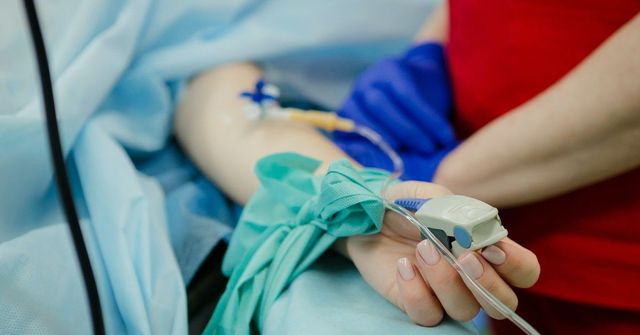Navigating the path to recovery post-surgery is a crucial phase that requires diligence and care.
In this comprehensive guide goodmorningday, we delve into essential strategies for managing pain, maintaining proper wound care, gradually reintroducing physical activity, following a tailored dietary plan, and recognizing warning signs of potential complications.
Empower yourself with the knowledge and tools necessary to achieve a successful recuperation journey after your operation.

Pain Management Strategies
Utilize appropriate pain management strategies to effectively alleviate post-operative discomfort. After surgery, it is crucial to address pain promptly and efficiently to ensure a smooth recovery process.
Non-pharmacological interventions, such as ice packs https://goodmorning.day, elevation, and relaxation techniques, can complement pain medications to provide holistic relief.
Stay proactive in communicating any changes in pain levels to your healthcare provider, as adjustments in medication dosage or type may be necessary.
Adhering to prescribed medication schedules and following up with healthcare professionals are vital steps in managing post-operative pain.
Wound Care and Dressing Changes
Proper wound care and timely dressing changes are essential components of post-operative recovery. Following your surgery, it is crucial to keep the surgical site clean and dry to prevent infections. Your healthcare provider will provide specific instructions on how to care for your wound and when to change the dressings.
Generally, dressing changes should be done regularly as advised, ensuring that you use sterile materials and clean hands to avoid introducing bacteria. If you notice any signs of infection such as increased redness, swelling, warmth, or discharge from the wound, contact your healthcare provider immediately.
Physical Activity Guidelines
Continuing with the recovery process following surgery, adherence to appropriate physical activity guidelines is crucial for optimizing healing and overall well-being.
While rest is essential initially, gradually incorporating light activities like short walks can help prevent complications such as blood clots and muscle stiffness. Listen to your body, gradually increasing the intensity and duration of exercise as advised by your healthcare provider. Avoid high-impact activities or heavy lifting until cleared by your medical team.

Dietary Recommendations for Recovery
How can dietary choices further support your post-surgery recovery process?
Proper nutrition plays a crucial role in aiding your body’s healing and regaining strength after surgery. Focus on consuming a balanced diet rich in vitamins, minerals, and protein to promote tissue repair and boost your immune system. Incorporate foods like lean proteins, fruits, vegetables, whole grains, and healthy fats into your meals.
Stay hydrated by drinking an adequate amount of water throughout the day. Avoid sugary snacks, processed foods, and excessive caffeine or alcohol, as they can hinder the recovery process.
Consult with your healthcare provider or a nutritionist to create a personalized dietary plan that aligns with your post-surgery needs and promotes a speedier recovery.
Monitoring Signs of Complications
To ensure a smooth recovery process after surgery, monitor for signs of complications diligently. Look out for any redness, warmth, or swelling around the surgical site, as these could indicate an infection. Persistent or worsening pain that is not alleviated by prescribed medication may also be a cause for concern.
Keep an eye on your temperature, as a fever could signal an infection or other complications. Any unusual discharge, such as pus or excessive bleeding, should be reported to your healthcare provider immediately.
Additionally, watch for symptoms like shortness of breath, chest pain, or dizziness, as these could be signs of more serious issues like blood clots or internal bleeding. Stay vigilant and seek medical attention promptly if you notice any of these warning signs.
Conclusion
In conclusion, following the post-surgery recovery guidelines outlined above is crucial for successful healing and minimizing complications.
Pain management, proper wound care, physical activity, dietary recommendations, and monitoring for signs of complications are all essential aspects of the recovery process.
Adhering to these guidelines will help promote a speedy and smooth recovery after an operation.
…